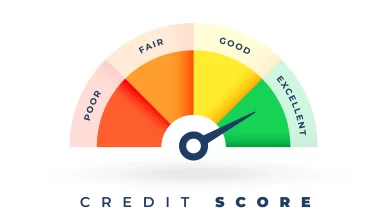
Are you interested in starting your own accounting small business? Then you’re in the right place to take the first step on the path from idea to reality. There are many reasons why you might want to start an accounting small business. You may be working full time as a bookkeeper for a company and now you are ready to take the first step towards self-employment. Even if you’ve lost your job, starting your own small business can be a great opportunity to shape your own destiny.
Starting Small business: What Does an Accountant Do?
When you Starting own small business you need to perform a number of functions for your clients. These include assessing the company’s financial position and submitting the information to the appropriate authorities.
- Preparing financial reports as part of the accounting process.
- Due to the analytical and complex nature of accounting, specific skills are required.
- Act as a trusted advisor to the company.
- How much should I charge for my services?
- In fact, there is no single answer to the question of how much you should charge for your services. You should consider the following factors
- Your accounting experience
- Your accounting experience
- The services you provide
- The size of the company you work for.
Generally, we charge either an hourly rate or a fixed monthly fee. You can also enter into a prepayment agreement with some (or all) of your clients.
Tips for Accurate Financial Organization Records
Partnering with a professional accountant can help small businesses endure the current economic environment & thrive in the future. #MSMEDay https://t.co/PXFgjhXsiu pic.twitter.com/W9s8N8APwF
— IFAC SMP Activities (@IFAC_SMP) June 26, 2020
The world’s largest accounting organization, bookkeepers keep accurate financial records, accurately recording a company’s cash receipts and expenditures.
- An accountant can help small businesses
- Prepare tax and VAT returns at year-end.
- Monitor daily cash flow.
- Effective financial management.
- Meticulous work and understanding of finances are the hallmarks of the accounting profession.
Some accountants also offer a small business brokerage service to help companies get the best deal when renewing insurance, purchasing new equipment or leasing a company car.
Process of VAT and Payroll
- This can then be sent to the accountant’s office for the annual accounts. Accountants can also prepare VAT returns, complete self-assessment tax returns and deal with payroll.
- VAT returns, reconcile bank accounts,
- Process payroll and other accounts, prepare individual tax returns, final accounts for sole traders and small business accounts and tax returns,” she explains.
Need to Researching and Creating a Small business Plan
Before you start an accounting small business, you need to do extensive research. You need to ask yourself the following questions
-
Who will be your clients?
Most likely If you start the best small businesses bookkeeping services, for example, Less than 50 employees, If micro-small businesses less than 10 employees, and freelancers.
-
How do I find clients for my accounting small business?
This could be through friends and family, former employers, local advertising, marketing on your website or social media, or word of mouth.
-
What services will you offer your customers?
For example, recording cash receipts, bank deposits, paying vendor bills, managing annual budgets, payroll, etc. The services we offer vary greatly depending on our clients’ needs.
-
How do we interact with our clients?
Will we provide a one-time accounting service or will we enter into an open-ended contract? All of these considerations are part of the overall concept of an accounting small business plan.
-
Does your firm have a one, three or five-year plan?
What do you want your accounting small business to achieve in terms of recruitment, revenue and success? It’s important to do some research beforehand so you have a clear idea of where you want to go and what you want to achieve.
Conclusion
You need accounting insurance because you provide an essential service to your small business. Mistakes can happen. Professional liability insurance protects you from claims by unhappy clients and employees.
Final Thoughts
It protects you financially, minimizes the impact on your small business, pays your fees if a disgruntled client refuses to pay and covers the cost of correcting errors.
Also read: Bookkeeping Services: How to Manage Small Business Successfully?





